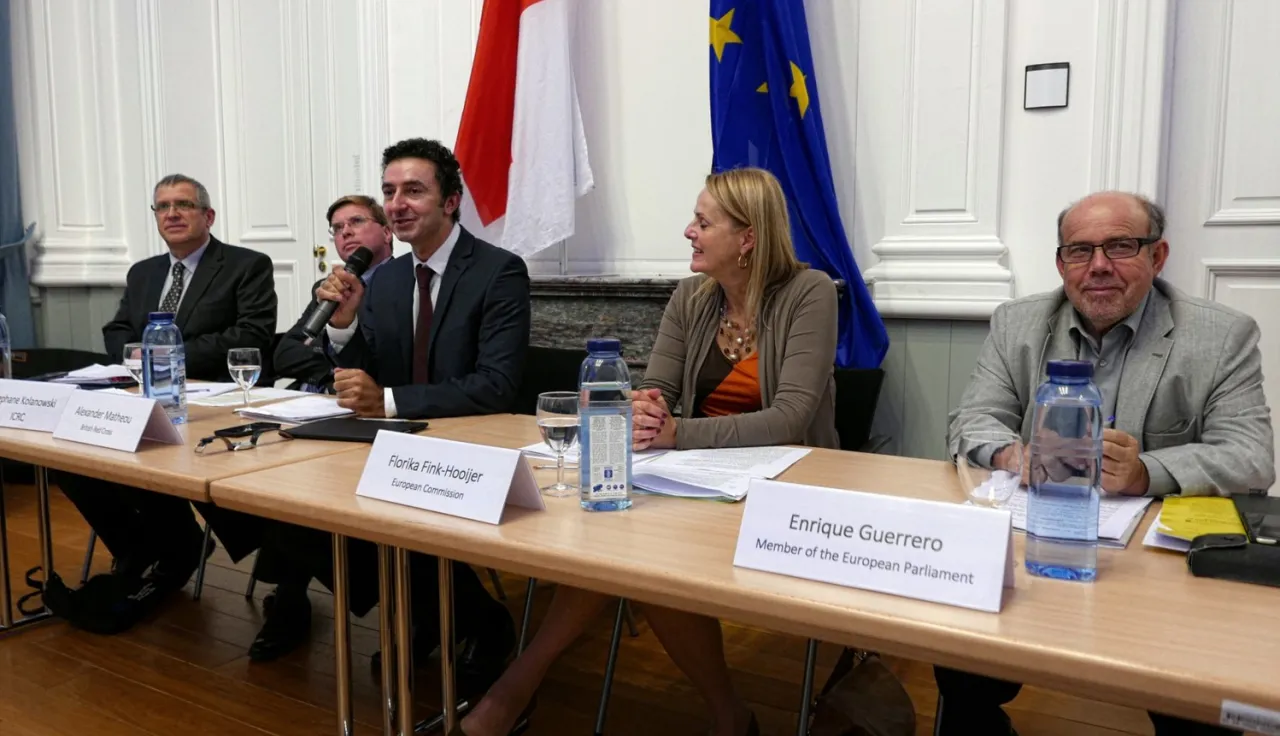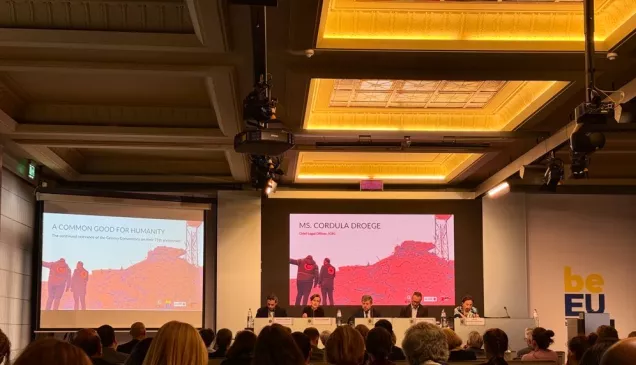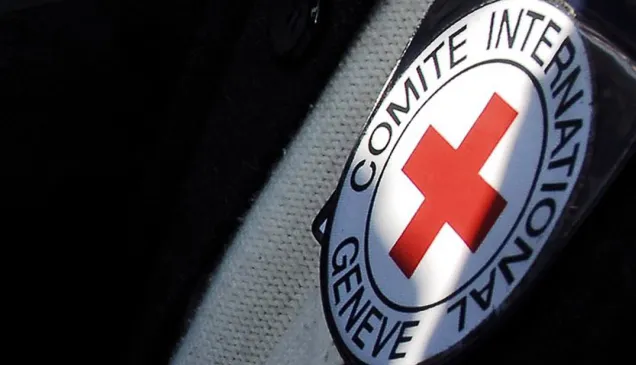Brussels, 21 September - 50 years ago, the Red Cross Red Crescent Movement adopted the Fundamental Principles (Neutrality, Independence, Impartiality, Humanity, Universality, Unity, Voluntary Service) at the 20th International Conference of the Red Cross in held Vienna, Austria. These principles remain more than ever relevant, not only as a daily challenge for Red Cross Red Crescent action in the field, but also in the framework of the upcoming World Humanitarian Summit. That is why On September 21, the ICRC, the Red Cross EU Office and the Standing Rapporteur on Humanitarian Aid of the European Parliament organized an event on the Red Cross Red Crescent Fundamental Principles in the European Parliament Information Office in Belgium. The discussion aimed to engage representatives of the European Union and of the Red Cross Red Crescent Movement to discuss the meaning and relevance of the principles as well as some of the challenges they face in their daily application.
The principles and the migration crisis
Linda McAvan, President of the Committee on Development of the European Parliament, introduced the event by underlining the difficulties currently faced by humanitarian workers as thousands of people take huge risks to flee conflict zones. She praised the work of humanitarian actors while deploring the lack of cooperation of governments to transfer money to support the provision of aid. Taking the refugee crisis as an illustration, Alexander Matheou, Director of Programmes at the British Red Cross, explained how the principle of Impartiality is instrumental for humanitarian actors to look at crises away from headlines. Indeed, it is only by conducting a sober analysis of where the needs are that humanitarian actors can relieve suffering indiscriminately and give priority to the most urgent cases of distress.
Humanitarian action and the European Union
Florika Fink-Hooijer, Director of the European Commission at the Directorate General for Humanitarian Aid and Civil Protection (ECHO), noted that the humanitarian principles are not part of the classic crisis management toolbox of the European Union. She insisted, however, that ECHO stands on a different line. She argued that although the European Union and its member states are not neutral, the principles are healthy for ECHO to clarify the limits of its approach. The principle of Independence, which ensures the autonomy of humanitarian actors from governments, was endorsed by both representatives of the European Commission and European Parliament. Florika Fink-Hooijer said that although ECHO supports the provision of aid through donorship, it makes sure not to put humanitarian actors in danger by compromising the trust their independent stance guarantees them. Enrique Guerrero, Standing Rapporteur on Humanitarian Aid of the European Parliament, agreed on the importance of distinguishing the approaches of political and developmental actors, involved in a transformative approach, and this of humanitarian actors. Although they might share the goal of alleviating human suffering, he said, these actors have separate logics.
Reaffirming principled humanitarian action
Stéphane Kolanowksi, Senior Legal Advisor at the ICRC Brussels delegation, demonstrated that for the ICRC, a clear perception of the principles by combatants is an imperative to guarantee access and security of humanitarian personnel. For a humanitarian organization, this involves making sure to use a terminology reflecting its actual practice, and knowing what is the actual meaning of each principle. Because not all aid providers take a principled approach, it is important to talk about different humanitarian systems with different responses, rather than to think in terms of a humanitarian community.
Join the debate: #ourprinciplesinaction
For the latest updates on humanitarian law and policy, subscribe to the Law and Policy Newsletter.




